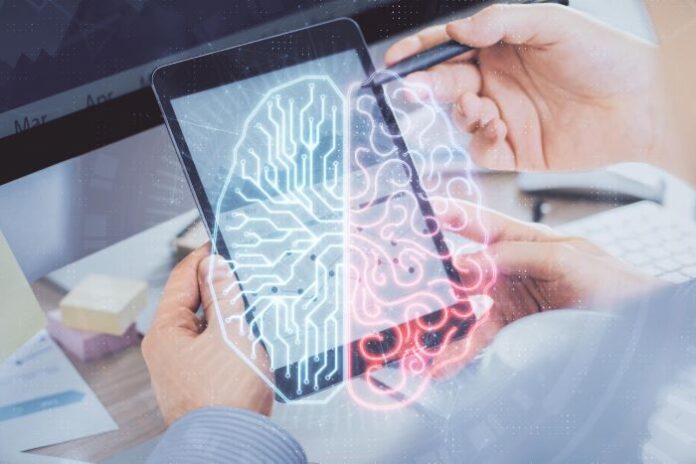Seeking assistance for daily challenges no longer necessitates relying solely on therapists, thanks to the prevalence of technology-driven methodologies aimed at transforming the mindsets contributing to these perceived difficulties. Furthermore, these tools offer the potential not only to tackle problems but also to architect the desired life, ultimately leading to profoundly better life experiences. Here we’ll delve into self-assessment and self-change at scale using technology.
The Challenge of Expanding Mental Health Care
The field of mental health struggles to provide help to individuals seeking it, primarily due to constraints such as limited resources, cost barriers, and patient resistance. Not everyone grappling with challenges, however, requires traditional therapy from licensed professionals to overcome their struggles. For those not in immediate crisis, there exists a plethora of alternative approaches, facilitated by technology’s scalability, enabling millions to live profoundly better lives.
One helpful approach with its roots in Cognitive-behavioral Therapy (CBT) and available through technology, serves as a powerful tool to reshape thought patterns. In CBT it is called Cognitive restructuring and involves altering unconscious beliefs that give rise to undesired reactions, thoughts, emotions, and behaviors. Adaptive theory, under the cognitive-behavioral umbrella, combines cognitive restructuring with self-affirmation to swiftly shift mindsets. This process is called mindset restructuring, which has been reverse-engineered into a Chatbot App and integrated with an EEG Headset to scale use to millions. Users identify and change mindsets through chatbot sessions, often guided by a personal coach. Using tech, here we can see self-change at scale.
Unpacking the Origin of Reactions in our Unconscious
In theory, restructuring one’s mindsets is simple. If you believe for example, from an experience or parental modeling, that strangers will hurt you, your automatic reaction to a stranger will be to avoid them, you’ll experience fear, and will miss opportunities to make someone’s day a little better with a smile. To shift your behavior to the latter, providing a welcome smile, you can change your mindset from “strangers will hurt me,” to “strangers are interesting,” and as a result you will not automatically go into defense mode when your mind senses a “stranger.”
Our emotional states are closely linked to our conditioning. An illustrative example is the influence of social media, dictating standards of appearance and behavior. The pressure to conform to these ideals often leads to feelings of hopelessness and inadequacy if the predefined benchmarks aren’t met. Through mindset restructuring, these emotions can swiftly transform by refocusing on values and meaningful pursuits rather than externally imposed standards.
Numerous individuals, particularly the younger generation, grapple with a sense of aimlessness, unsure of what could infuse their lives with purpose. This stems from conditioning that directs them to pursue the desires of parents, teachers, and employers, rather than their own aspirations. Discovering one’s true desires requires time, yet this journey can be accelerated by heightening self-awareness and crafting the desired life through the recalibration of mindsets.
Our Unconscious Minds Scan for Threat
Scientists have uncovered that our emotions frequently stem from our thoughts. According to Adaptive theory, these “thoughts” encompass mindsets forged from prior experiences that swiftly and effectively ensured survival. These mindsets provide a sense of predictability to mitigate uncertainty. Professionals in mental healthcare define stress as arising from a lack of control over situations, leading to uncertainty. Within the realm of mindset restructuring, there exist avenues to either embrace uncertainty as a means to showcase resilience or to willingly release control and welcome the unknown as an exciting journey. Each individual adjusts their mindsets to align with their chosen path in life. Upon embracing a lifestyle of mindset restructuring, numerous possibilities unfurl, as personally crafted responses become a remarkable advantage.
Our unconscious minds carry out safety protocols that give rise to instinctive responses to our surroundings. Your mind remains in a constant state of vigilance, searching for potential threats. However, not all threats warrant an immediate reflexive reaction, especially when you’re aware that it’s counterproductive. Despite your knowledge, you find yourself unable to prevent it. It occurs spontaneously, and roughly 20 minutes afterward, you experience regret. This is a fundamental aspect of the human operating system’s design. The sole method to navigate this automatic process is to modify the underlying mindset – that foundational belief responsible for the “triggered” response.
Chatbot for Mindset Shifting
Given the potency and rapidity of this process, achieving scalability becomes imperative. Enter Adaptive theory, renamed as mindset restructuring, coupled with self-affirmation and neuroscience. These techniques are now delivered to millions through technology.
The Meta-Brain Chatbot App employs brain wave measurements to guide users through self-led chatbot sessions. Capitalizing on self-awareness, users can navigate their thoughts, reshaping unconscious mindsets. Alexandrea Day, Founder of the Meta-Brain Labs, underscores the app’s ability to facilitate this introspective journey.
Self-Change at Scale
The path to profoundly better lives is rooted in the transformation of our mindsets – how we perceive ourselves, others, and our assumptions about how others perceive us. Achieving this transformative shift requires dedicating time to self-reflection, active listening, and embracing a lifestyle centered around continuous mindset evolution. Truly self-assessment and self-change at scale.















